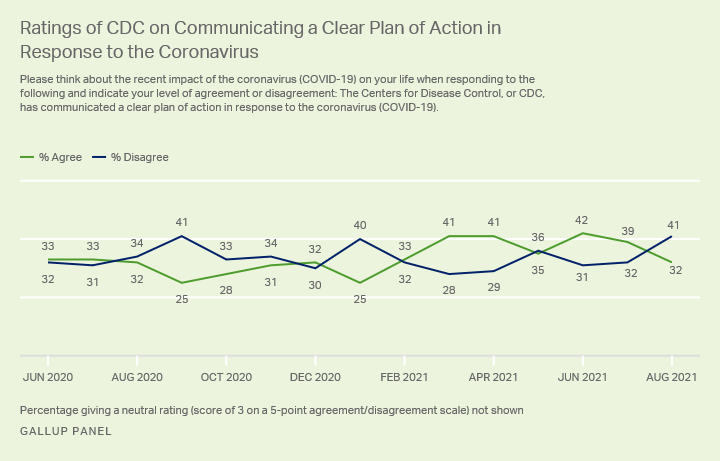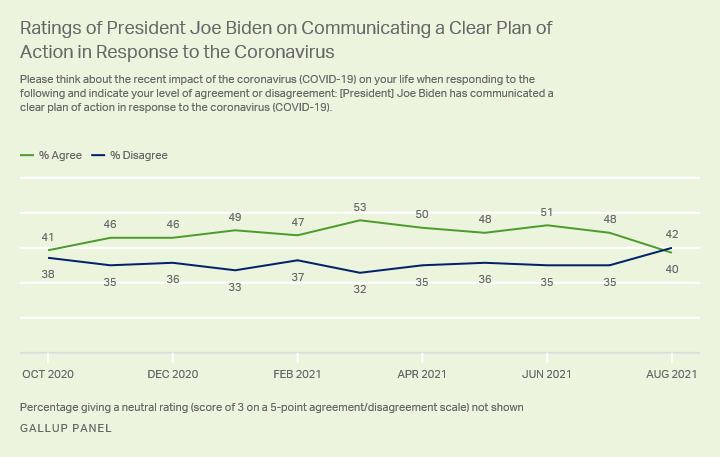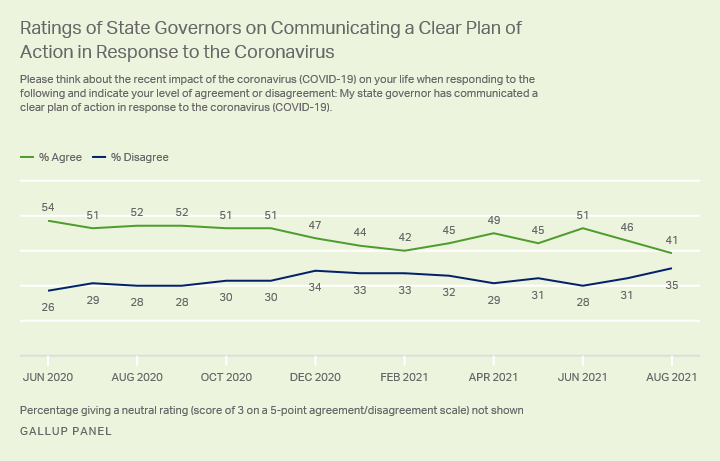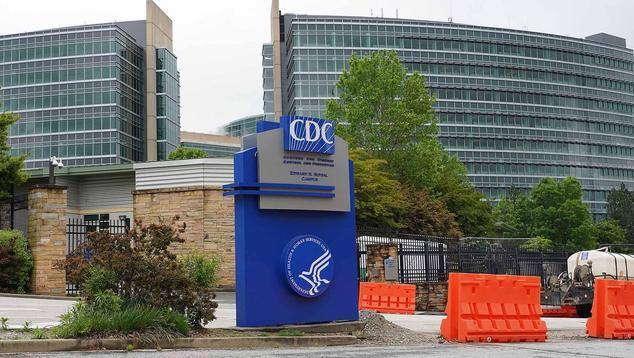Story Highlights
- 32% agree, 41% disagree that the CDC has communicated a clear plan
- Ratings of President Biden's communication are now divided
- Governors' ratings remain positive but are worst to date
WASHINGTON, D.C. -- More Americans now disagree (41%) than agree (32%) that the Centers for Disease Control and Prevention (CDC) has communicated a clear plan of action in response to the COVID-19 situation. This is the first Gallup reading since the CDC in late July changed its guidance on the need for face masks for unvaccinated people in areas of high coronavirus transmission.

Line graph. Americans' agreement or disagreement that the Centers for Disease Control and Prevention has communicated a clear plan of action in response to COVID-19. In August 2021, 32% agreed and 41% disagreed. Those ratings are similar to what Gallup measured in September 2020, when 25% agreed and 41% disagreed, and January 2021, when 25% agreed and 40% disagreed. In all other readings, Americans were evenly divided or more likely to agree than disagree, with agreement surpassing 40% in March, April and June 2021. These percentages omit those who give a neutral response on the five-point strongly agree to strongly disagree scale.
The public's opinions about CDC communication have varied throughout the pandemic. They have been more critical than positive at other times besides now. These include September 2020, when there was concern about premature approval of COVID-19 vaccines, and January 2021, when infections and deaths peaked and the federal government struggled with the initial vaccine rollout.
Since March, Americans had tended to be more inclined to agree than disagree that the CDC was communicating a clear plan.
The latest results are from Aug. 16-22 interviewing in Gallup's COVID-19 tracking survey. More than 3,500 U.S. adults who are members of Gallup's nationally representative panel were interviewed by web for the survey.
Biden's Ratings on COVID-19 Communication Also Worsen
The poll also finds Americans divided in their views of whether President Joe Biden is communicating clearly in regard to the coronavirus response -- 40% agree that he has, and 42% disagree. This is the first time Americans have not been more positive than negative about his communication, as a presidential candidate or president-elect in 2020 or as president this year. This change is consistent with the decline in his overall job approval rating in July and August that has occurred as new coronavirus infections have spiked in the U.S.

Line graph. Americans' agreement or disagreement that Joe Biden has communicated a clear plan of action in response to COVID-19. In August 2021, 40% agreed and 42% disagreed. In all prior readings since Gallup first asked about Biden in October, more Americans agreed than disagreed, including a high of 53% agreeing in March.
Americans were consistently more negative than positive about Donald Trump's communication on the pandemic when he was president.
Governors Continue to Be Rated More Positively Than Negatively
Also, 41% of U.S. adults agree and 35% disagree that their state governor has communicated a clear plan on the coronavirus. Americans have been more likely to positively than negatively evaluate their governor's communication on the COVID-19 situation since Gallup first asked the question in June 2020. The current ratings, however, are the least positive Gallup has measured to date.

Line graph. Americans' agreement or disagreement that their state governor has communicated a clear plan of action in response to COVID-19. In August 2021, 41% agreed and 35% disagreed. More Americans have agreed than disagreed in each survey since the question was first asked in June 2020, including a high of 54% that month. The current percentage agreeing is the lowest, with the prior low being 42% in February 2021.
To stay up to date with the latest Gallup News insights and updates, follow us on Twitter.
Explore President Biden's approval ratings and compare them with those of past presidents in the Gallup Presidential Job Approval Center.
Learn more about how the Gallup Panel works.




